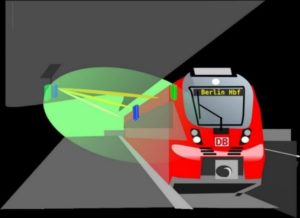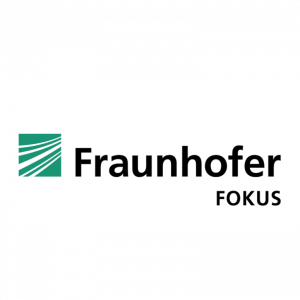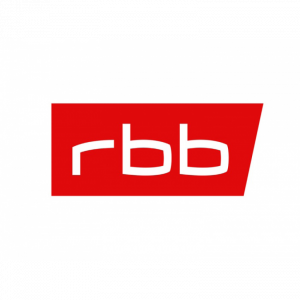The 5G-VICTORI consortium concluded on June 27th in Patras, Greece, its ultimate Field Trials and, as the last event of...
UC #3 Berlin: CDN services in dense, static and mobile environments
Streaming services usually deliver their content via Content Delivery Networks (CDNs), which are caches placed at strategic network nodes. CDNs enable a higher level of service reliability and can be designed to optimize the distribution of network loads and transmission costs. However, due to high consumption of media content on public transportation, especially in environments of limited bandwidth, service reliability decreases while transmission costs increase. As such, the CDN solution in Berlin follows the multi-CDN approach, so that integration into the CDN infrastructure of content providers can transition smoothly.
This UC aims to optimize streaming services in mobile environments enabled by 5G technologies, including mmWave, edge computing and media streaming standards, i.e. NBMP and MPEG SAND. It follows the multi-CDN concept and extends the streaming service’s CDN to trains by equipping them with caches. The caches are filled with content via mmWave high-speed links (“Data Showers”) for uninterrupted connectivity.
5G-VICTORI Berlin Facility
The 5G-VICTORI Berlin facility extends the 5G connectivity towards the Berlin Central Station in support of three UCs. These UCs impose different service requirements that map to the 3GPP defined service classes: eMBB, uRLLC and mMTC. The design of the Berlin facility network covers three additional sites supporting 5G and Wi-Fi connectivity, including a 5G-capable testfield that is being used for testing FRMCS features.
Developed solution

The data shower consists of a data source, data transmission system and data sink. The transmission system involves mmWave equipment providing connectivity to a train on the move. On one hand, mmWave units will be installed at the platform side and, as well, they will be attached to a Regional Train that will be equipped with the equipment to support the UC.
The media cache in the train station serves as the data store, which preloads the relevant media items from the content provider’s CDN prior to the train entering the station (5G platform). Once media items are requested from the App & Media Server (hosted by a physical infrastructure on the train), the media items can then be accessed by passengers through a media application on their personal devices. To assess the feasibility of the data shower approach and the end-to-end workflow, the tests listed below cover all aspects of the use case: content aggregation, updating caches in the station and onboard the train, transmission of the data to and in the train, and usage and quality metrics measurement.
Having two nodes installed at the platform and 1 node installed at the train outer panels, it is assumed that the train will approach and connect to the Berlin Central station via mmWave to download streaming content in a “data shower” fashion. To validate this UC, the Mediathek catalog (offered by RBB) will provide VoD content. To integrate with the Deutsche Bahn facility, the CDN platform will be enabled by NBMP and consist of three main network entities: workflow-manager, tasks and function repository.
Service Deployment
The Data Shower approach that is being developed in 5G-VICTORI extends the streaming CDN services to trains, by equipping them with caches filled with content via wireless data links. The data shower utilizes mmWave connectivity, which allows large amounts of media data to be transferred between caches within a very short time period. This allows for a transfer of media content from the train station’s CDN cache to the train’s cache at data rates of up to 2.5 Gbit/s or even higher. In the future, data showers will be installed at selected locations along the train route. This is necessary to ensure that not only the most recent content is stored in the train cache (which is especially relevant for news content), but also that older, archived content is removed. Due to cost considerations, data showers will initially be installed at train stations, leveraging on existing physical infrastructures. The Berlin Central Station is considered as the place to validate this use case under real/operational conditions using the on-demand video catalogue of RBB (RBB Mediathek).
Partners
Related news
Field Trials and Workshop in Greece mark the final milestone for the 5G-VICTORI Project
The 5G-VICTORI consortium will gather in Patras and Athens from Monday, June 26th, to Wednesday, June 28th, to conduct their...
5G-VICTORI Contribution to 5G PPP TMV White Paper
5G PPP Test Measurements and Validation Working Group released its conclusive White Paper on Key Performance Indicators measured in advanced...
5G-VICTORI participates in EuCNC & 6G Summit 2023
The 5G-VICTORI project returns to the EuCNC & 6G Summit, taking place in Gothenburg, Sweden, from June 6th to 9th,...









